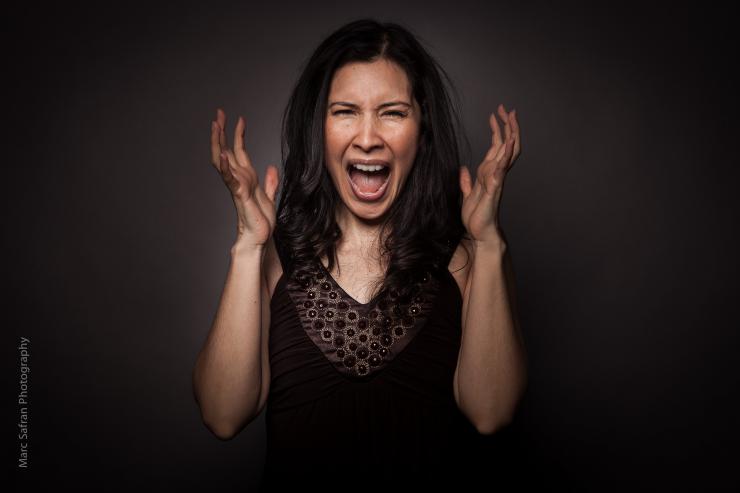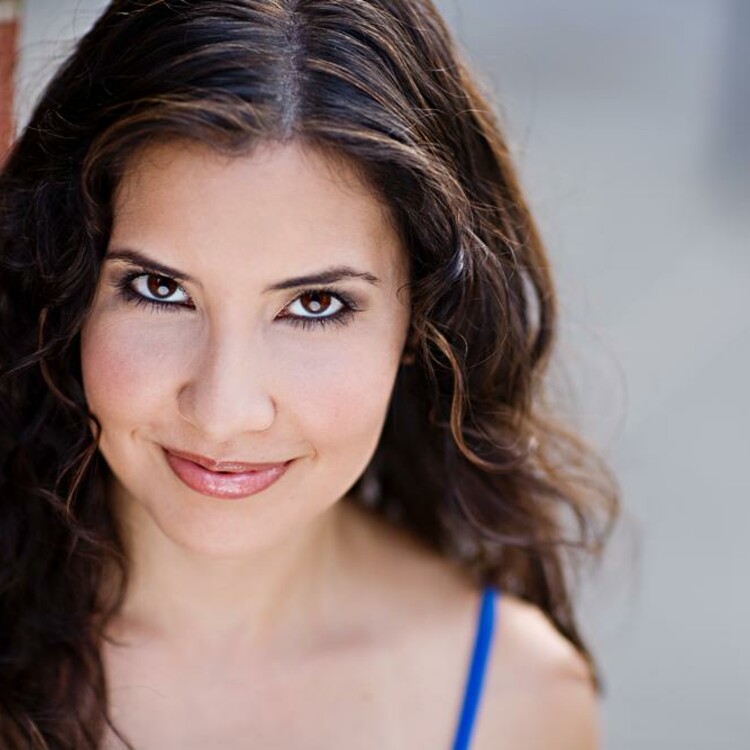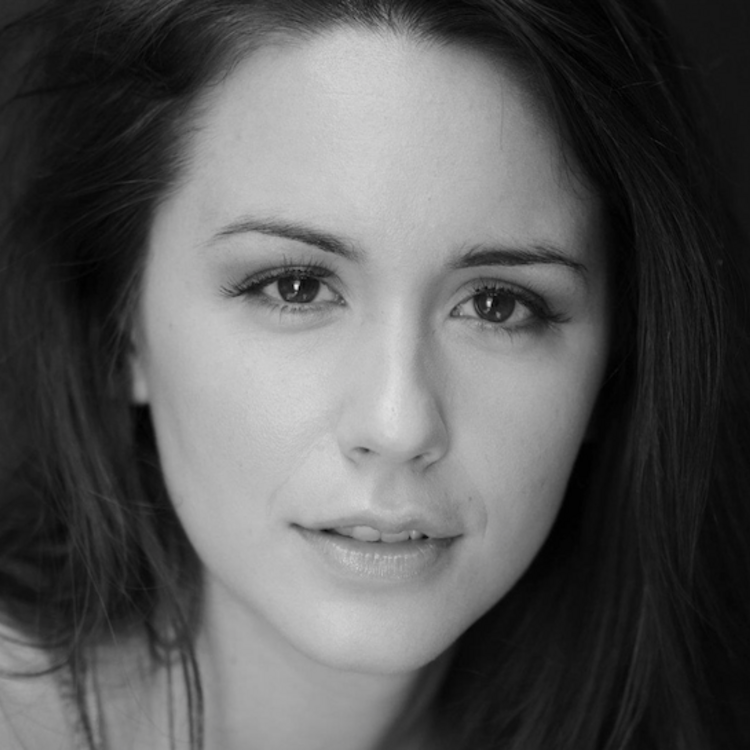Don’t Tell Anyone—A Call to Action for a Healthy Work-Life Balance in the Arts
In the fight for diversity, equity, and inclusion, creating platforms that give voice to the nuanced experience of all parents will identify how the theatre culture at large can act to make better pathways back in for those left out of the discussion, thus directly affecting the pipeline, content, and population of our craft. The Parent Artist Advocacy League for the Performing Arts (PAAL) is a national resource hub and all-parent, all-discipline league advocating for a national standard of best practices for parents in the performing arts. This HowlRound series builds on the work of PAAL and will cover challenges faced by parent artists and offer some solutions and advice.—Rachel Spencer Hewitt, series curator.
***
One week before heading off to play one of my dream roles, I found out I was pregnant. What should have been a happy and exciting time turned into one of the darkest periods of my life. I had so many questions, and no role models in my life to guide my way. I believed, however, that once I called my union, I would receive guidance on how to navigate this unexpected turn of events.
I dialed the number that I had called so many times, relieved to finally get connected to the business rep for my region. I told the rep my circumstances, and asked, “How should I proceed? What do I do? What’s the protocol?” The answer that I got was “I don’t know.” I was then put on hold because the rep was going to ask someone in the office. I started to get nervous. Maybe I shouldn’t be calling. Maybe I shouldn’t even be bringing this up since I was still pretty early on in my pregnancy.
The rep finally came back on the line and told me that I could maybe lose my job—that it depended on the artistic director and the theatre, and that what some actresses did was just hide the fact that they were pregnant and wait until they could no longer keep it a secret. It was up to me to do what I wanted, whether to lie and keep silent about my pregnancy or to be upfront and possibly lose my job, but that if I told the theatre and got fired to call back and they would try and support me. Good luck, and congratulations!
The long-standing advice to actresses about pregnancy has been secrecy and silence. This “don’t tell anyone” mentality to protect your career in our industry has created a culture where women are left feeling alone, ashamed, and afraid of losing their jobs.
My stomach dropped, and my heart sank. I felt extremely alone, ashamed, and confused. In this instant, I was made to believe that I could only choose one: family or career. Ironically, my pregnancy meant the possibility of getting fired from the very job that was going to provide me with the weeks required to be eligible for the much-needed health insurance benefits that would allow me to start the family planning process. I thought my union would be there for me armed with information to guide me, and to protect me and my rights. It wasn’t. My union failed me at a time when I needed them the most.
This is just one of the many deeply personal and painful accounts shared with the Parent Artist Advocacy League (PAAL) for the performing arts, a national network and resource hub built to stimulate conversation that breaks barriers and stigmas of parenthood in the theatre while promoting and generating solutions and initiatives—which Actors’ Equity Association (AEA) and other entertainment industry unions have so far failed to do for their members. The long-standing advice to actresses about pregnancy has been secrecy and silence. This “don’t tell anyone” mentality to protect your career in our industry has created a culture where women are left feeling alone, ashamed, and afraid of losing their jobs.

The time for change is now. Our unions need to offer support, education, and resources, and need to start firmly fighting back against pregnancy and parental discrimination in our industry.
PAAL is gathering information from women across the country for the creation of a Pregnancy Handbook, the first of its kind, which will be a remarkable resource for women artists by women artists. All of our entertainment industry unions need to be leaders in work-life balance efforts for their members and need to be setting the example for how theatre institutions should care for all collaborators.
It’s vitally important that this conversation includes all caregivers of all genders and experiences. The more we listen and share with each other our experiences of adoption, fertility treatments, miscarriage, voluntary pregnancy termination, family planning, and parent/sibling/elder caregiving, the more we can assess our needs as artists and begin to demand the solutions and support from our industry and our unions so that we can begin leading fully integrated, harmonized, and healthy lives while giving ourselves a greater opportunity to reach our highest potential as both human beings and as artists.
There has been some good forward momentum. This year, we have PAAL members Kate O’Phalen and Erin Koster serving as AEA council members who are committed to seeing changes in our industry and working toward our union becoming a public and aggressive advocate for its members regarding work-life balance issues. And recently, AEA gave the issue significant attention in their Autumn issue of Equity News, providing necessary visibility, accounts from real parent artists, and information on resources.
'Today, there is a new wave of young, passionate parents in the industry...We...see the need for more aggressive advocacy on behalf of these members.'
There is also a renewed interest from AEA to revitalize the AEA Parents’ Committee. Leading the charge is Kristen Beth Williams, Co-Chair of AEA Parents’ Committee. Williams says,
Pregnancy and wanting to have a family have long been seen as ‘abnormal’ in our industry. Women live in fear, not just of losing their current jobs, but of being seen as a liability while they’re pregnant–and therefore ‘unhireable’–and of not being able to return to work when they want. In the early 2000s, AEA had a committee dedicated to advocating for parents in the industry. Its primary goal was child care, both in New York and on the road, and they made some serious headway, but in 2009 New York laws changed, the project hit major roadblocks, and the project and committee fizzled away. Today, there is a new wave of young, passionate parents in the industry, dealing with challenges new and old. We at AEA see the need for more aggressive advocacy on behalf of these members, so we are revitalizing the Parents’ Committee to better serve our members.
It’s important to recognize, too, that there is not only a new wave of passionate parents in the industry seeking change—some of us are not necessarily parents. We are artists who may be in the beginnings of family planning. We are artists in our midcareer years going through fertility treatments, or looking into adoption. We are single artists electing to go through treatment to preserve our fertility through advanced technologies or single artists choosing to have a baby, adopt, or foster on our own. We are artists whose caregiving responsibilities have expanded to include taking care of not only our children but also our aging parents, friends, or neighbors. We are artists who have experienced the loss of a child while working on a job, juggling our grief with rehearsals and performances. We are simply artists who want to forge a better path for those that will come after us because we never want others to experience what we have. The list goes on and on.
We can begin to find hope, comfort, and inspiration in each other’s stories, and support in each other. I urge other entertainment industry unions and theatre institutions to release their own statements of commitment to work-life balance practices and to join efforts with PAAL. With the revitalization of the Parent’s Committee at AEA and their renewed commitment to aggressively advocate on behalf of its members, we now have a perfect collaborator in this cause, but it will take a joined effort from all members of our theatrical community to create the types of working environments that promote a healthy work-life balance and support artists and collaborators at all stages of our lives, thereby enriching the art that we create and bring into the world.



Comments
The article is just the start of the conversation—we want to know what you think about this subject, too! HowlRound is a space for knowledge-sharing, and we welcome spirited, thoughtful, and on-topic dialogue. Find our full comments policy here
I wrote about this same topic back in the mid 80’s when I was running the Vineyard Theatre in New York (the piece was published by Theatre Times newspaper which no longer exists (was published by ART/NY). I got married in 83 and my wife had our first child in 86. I was neither an Equity actor, nor a woman, but I too experienced the profound lack of family friendly culture in the arts. As Managing Director of a small theatre I worked a full traditional workday but was also needed at the theatre most nights - to observe rehearsals and performances, meet donors and trustees, etc. it was an 18 hr/day, 7 day/wk job. And I was a party too it. Nobody was forcing this on my, but nobody was also telling me to be with my kid. Nobody else I worked with had kids - it was just not part of the culture. And nobody offered parental leave, or family insurance. I do think it has gotten better over the past thirty years but it is clear there is still a long way to go!